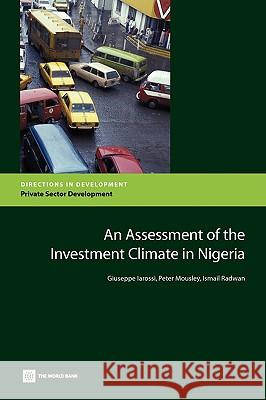An Assessment of the Investment Climate in Nigeria » książka
An Assessment of the Investment Climate in Nigeria
ISBN-13: 9780821377970 / Angielski / Miękka / 2009 / 126 str.
Nigeria's Vision 2020 has expressed a bold desire for the country to be among the world's top 20 economies by the year 2020. The economy has posted impressive growth figures since 2003, driven by higher oil revenues and a series of home-grown economic reforms. The country is now firmly on the road to middle-income status. But what else do government and the private sector need to do to create the jobs and growth that will underpin the national development strategy? What are the challenges that Nigeria's businesses face today? 'An Assessment of the Investment Climate in Nigeria' provides answers to these questions. Based on a survey of 2,300 companies, it provides evidence-based recommendations designed to support Vision 2020 and the president's seven-point agenda. The authors find that government must move quickly to create jobs and reduce poverty. Key challenges include a desperate shortage of energy and a poor transportation network, as well as low levels of education and continuing unrest in the Niger delta. In addition, Nigeria's workers need to become more productive in order to compete in a globalized economy. As a matter of fact, they are less productive than workers in more dynamic countries, such as Brazil, China, and Kenya. Improving productivity will require simultaneous efforts to foster competition, improve specific aspects of the business environment, and facilitate better management and training within individual firms. In addition to the issues of productivity, Nigeria's best firms have not been able to expand their market share. Consequently, policy makers need to address and elimate obstacles to competition, including barriers to entry, convoluted taxation, property registration, and licensing.











